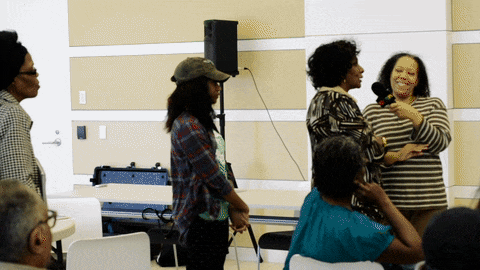Black millennials dictate popular culture and Nielsen has the data to prove it.
Black millennials are the leading innovators in technology use, according to a 2016 Nielsen report. That same report attributes $162 billion in buying power to Black millennials with African Americans as a block projected to have $1.3 trillion in buying power in 2017.
The idea is to leverage that consumption into creation. Transfer the talent that creates viral trends into creating innovate technologies.
Hence the title of the five-person panel organized by WURD 900 AM and Wilco Electronic Systems as part of Philly Tech Week 2017 presented by Comcast, which doubled as the question of the day: From Consumer to Creator: How Black Communities Can Transform Technology Consumption into Economic Power.
A few key insights from the panelists:
Money isn’t the issue but that doesn’t mean $2 million falls in a startup founder’s lap.
- “There’s more money for minority startups than there are minorities that can actually access the money,” said Timothy Reese, former Pa. state treasurer. Reese stressed the ability to articulate and deliver on a business plan. “’What are we trying to do?’ and ‘What do we expect are the outcomes?’ That is the better conversation to an investor. They need to know who you are, they need to know your brand.”
Leverage the resources and institutions around you.
- “I put Temple’s resources in the community and vice versa,” said Jamie M. Bracey, director of STEM Education, Outreach & Research at Temple University’s College of Engineering. The development in North Philadelphia can be a two-way street, despite town and gown conflict. “There’s a reverse positivity to using these institutions because their mission is to support community.”

Get kids exposed to STEM fields in primary school.
- Michelle J. Johnson, director of the Rehabilitation Robotics Lab at the University of Pennsylvania, has found that kids exposed to engineering earlier have better problem-solving skills. It’s an ideology Penn supports with by programs like Research Experience for Teachers summer program that gave middle school teachers experience with graduate level robotics and engineering so they could foster a love for STEM (science, technology, engineering and math) back in the classroom.
Beware the gentrification of ideas.
- Issues brainstormed at a community meeting can turn into intellectual property. “A university cohort will take on your idea as a classroom problem and you don’t see your idea if it’s coming to market,” said Bracey.
Know the city’s primary industries.
- Philadelphia’s known for its health and entertainment industry. “Every tour around the world has someone from Philadelphia,” said Bracey. “Look at the industry and identify the ways inside where we can own that part of the industry.”
Teach a man to fish and he eats for a lifetime.
- Kevin R. Johnson, president and CEO of Opportunities Industrialization Center (OIC) of Philadelphia, is at the point where his goal is to create the next generation of entrepreneurs and tech innovators. Creating skilled labor was his priority. Then a staffer asked, “Why don’t we become our own job creators?” Now, “instead of sitting up here and asking someone, we’re going out there and doing the fishing ourselves,” said Johnson.







